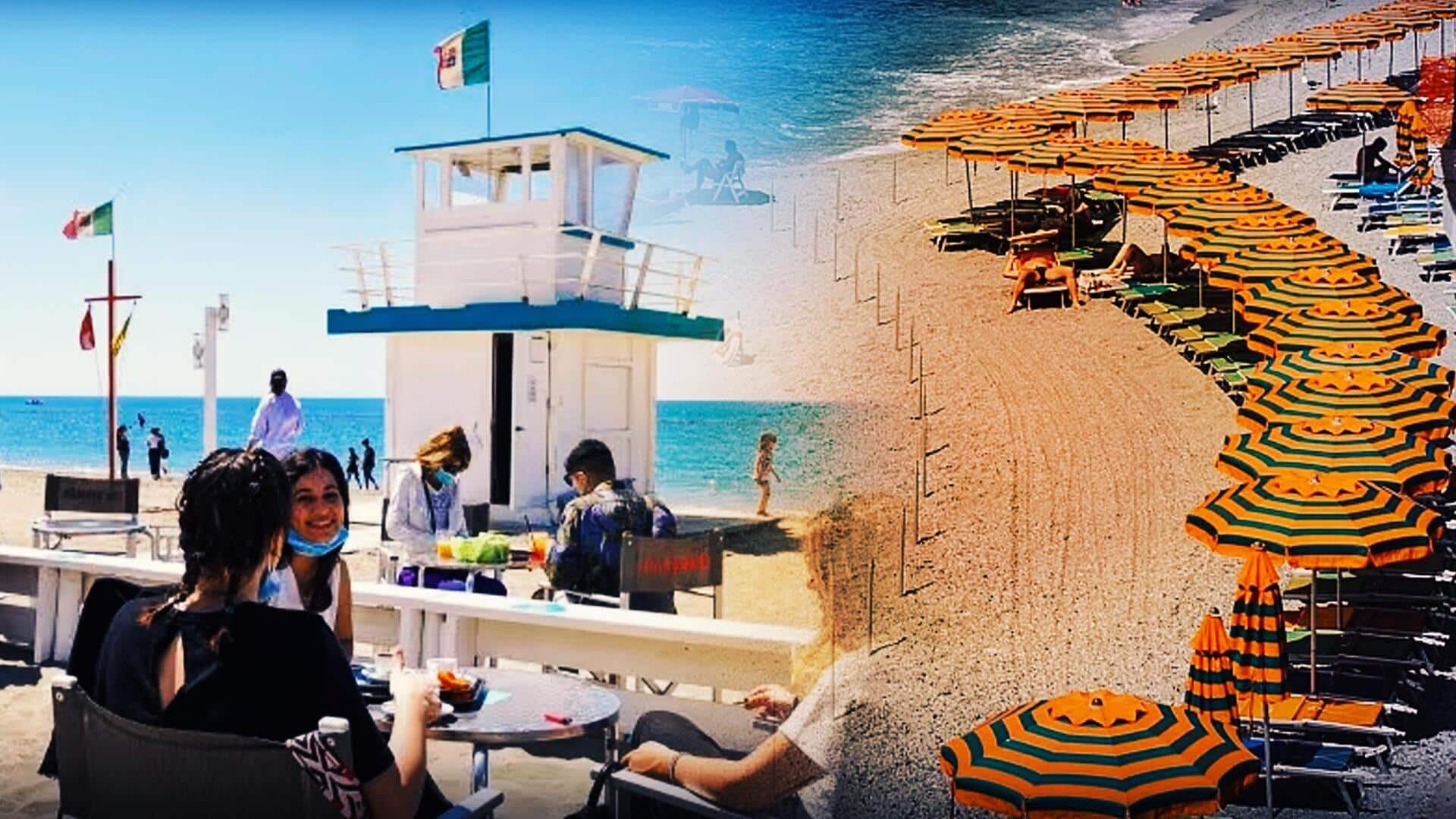
Why Italians are fighting for right to lie on beach
What's the story
A new European Union law has sparked a debate in Italy over the right to free access to the country's beaches, which are largely controlled by family-run concessions. These operators run exclusive clubs or charge high fees for amenities such as umbrellas and loungers. Activist group Mare Libero (Free Sea) has been protesting since 2019, aiming to make Italy's beaches free or at least allocated through a transparent bidding process.
EU law
Activists challenge Italy's beach concession system
The European Commission has long criticized Italy's beach concession renewal system, where state-owned licenses are inherited by families, violating EU law that requires open competition. In April, Italy's top court invalidated automatic renewals. A public tender for concessions, covering nearly half of Italy's 7,886 km coastline, will take place next year. This decision has angered concessionaires, who plan to strike this week.
Information
Over 12,000 beach resorts along Italian coastline
There are over 12,000 beach resorts along the Italian coastline, with daily prices for two loungers and an umbrella averaging €30-35 and reaching up to €700 in more exclusive places. In Naples, only 5% of the beaches are free from private ownership or pollution.
Strike action
Beach concessionaires plan strike
Riccardo Di Luna, head of Serapo's concessionaires association in Gaeta, expressed concern about the future but emphasized the importance of their services, including lifeguarding and beach cleaning, the Guardian reported. On Friday, beach concessionaires will strike, opening at 9.30am instead of 7.30am, to demand legislative clarity from the government. If no response is received, the strike will be repeated on August 19 and August 29, reports said.
Quote
'Transparent tenders with fair fees needed'
Meanwhile, Stefano Salvetti, a local coordinator for Mare Libero, called for transparent tenders with fair fees to dismantle these cultural and political barriers. According to Italy's court of auditors' latest report, between 2016 and 2020, the state collected an average of €101.7m a year from beach-based businesses while each business generated an average revenue of about €260000. "Municipalities could use these funds to provide lifeguards and toilets on public beaches," Salvetti said.